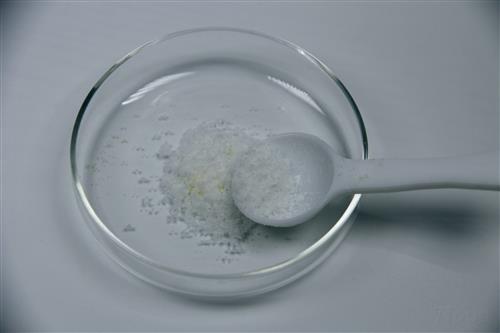The rot disease symptomatic treatment effect is good
What happens when MSG eats more?
Monosodium glutamate is a kind of condiment that can increase the freshness of dishes. Its chemical name is sodium glutamate. It is fermented and extracted from the starch and sugar of rice, wheat, corn and sweet potato.
In Western countries, only certain processed foods are mixed with monosodium glutamate, and ordinary people do not eat it. They are prohibited from use in baby foods because scientific research has found that monosodium glutamate particularly harms the development of young children's brain and optic nerve. The researchers suggest that each dish should not exceed 0.5 mg. The severity of MSG's side effects may vary due to the individual's physical fitness, because it is not suitable for long-term consumption.
What happens when MSG eats more? The following Xiaobian introduces you to the six major hazards of MSG:
1. The main component of monosodium glutamate is sodium glutamate, which can decompose glutamic acid during digestion. The latter is enzymatically catalyzed in brain tissue and can be converted into an inhibitory neurotransmitter. When excessive intake of monosodium glutamate, this inhibitory neurotransmitter will make the body's various nerve function in a suppressed state, resulting in dizziness, headache, lethargy, muscle cramps, irritability, panic disorder and a series of symptoms, some of the body is more sensitive People may even feel bone pain and muscle weakness. Moreover, excessive inhibitory neurotransmitters also inhibit the body's hypothalamus secretion of thyrotropin-releasing hormone, impede bone development, and have a significant impact on children's health.
2, because of sodium in MSG, excessive intake often feel thirsty, but also easily lead to high blood pressure. People over the age of 60 are particularly sensitive to sodium intake, so elderly people and people with high blood pressure, kidney disease, edema, etc. should especially eat less MSG.
3, when the consumption of MSG too much, more than the body's metabolic capacity, it will lead to increased blood glutamate, limiting the body of calcium, magnesium, copper and other essential minerals. In particular, glutamic acid can be combined with zinc in the blood, and zinc glutamate, which cannot be used, is excreted, causing zinc deficiency in humans. Zinc is an important nutrient for the physical and mental development of infants and young children. Zinc deficiency can lead to mental retardation, night blindness, late sexual maturity and adult dwarfism, so infants should be careful to feed.
4, excessive intake of monosodium glutamate is a visual killer, can lead to protein decline, so that the axial growth out of control. And MSG can reduce the body's taurine, affect the development of the retina, and even some people after eating MSG, will have a temporary blurred vision.
5. After eating too much MSG, the content of glutamic acid in human blood will increase, which will hinder the absorption of calcium and magnesium, causing short-term headaches, heartbeats, nausea and other symptoms, as well as adverse effects on the reproductive system.
6, excessive consumption of MSG, people will produce dependence on MSG, and then eat no MSG dish will feel no taste, but also hinder the absorption of other nutrients.

MSG eats more and becomes fat
A study has shown that people who consume more MSG (sodium glutamate) are more likely to become overweight or even obese.
Researchers at North Carolina State University conducted a five-and-a-half-year follow-up survey of the dietary habits of 10,000 adults in China. The survey results showed that compared with those who consumed less than half a gram a day, those who consumed more than 5 grams had a 30% higher chance of being overweight or obese after 5 and a half years.
MSG is the most commonly used seasoning in the world. The average daily intake of MSG is only about half a gram. The intake of Japanese and Koreans is between 1.5 and 10 grams. Monosodium glutamate is also commonly used in processed foods. The common preparation of ready-to-drink soups usually contains a large amount of MSG. Instant noodles seasoning, potato chips, biscuits, canned foods, etc., MSG is also a common increase in spices. The researchers pointed out that the reason that MSG causes obesity may be related to its effect on leptin secretion. Leptin increases the metabolic rate and suppresses appetite.
whole round swimming crab
Swimming Crab,Whole Swimming Crab,Whole Round Swimming Crab,Fresh Whole Swimming Crab
Zhoushan Junwei Aquatic Products Co., Ltd. , https://www.junweiaquatic-intl.com